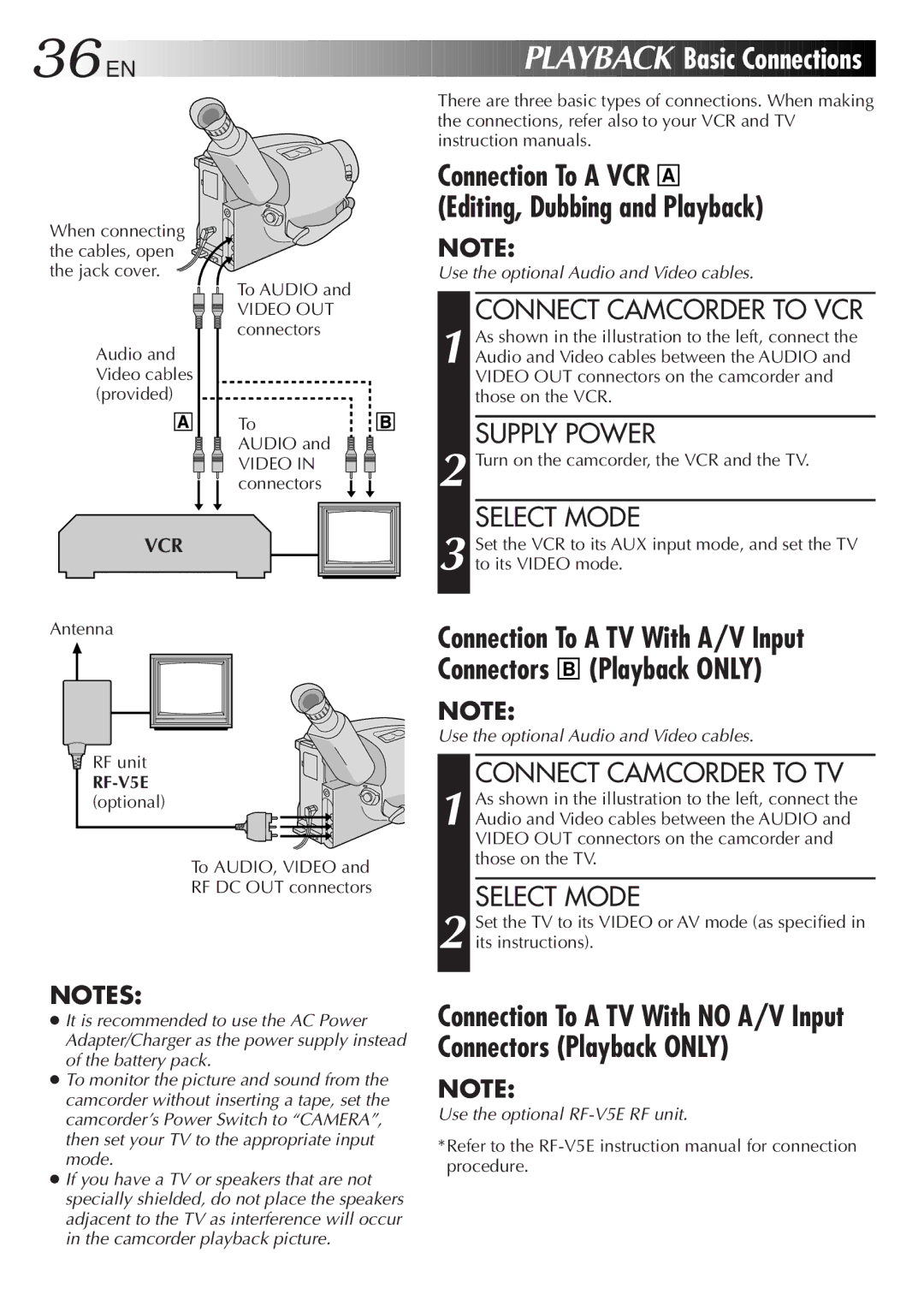
36

 EN
EN























































 PLAYBACK
PLAYBACK


Basic
 Connections
Connections


When connecting the cables, open the jack cover.
Audio and Video cables (provided)
VCR
To AUDIO and
VIDEO OUT connectors
To
AUDIO and
VIDEO IN connectors
There are three basic types of connections. When making the connections, refer also to your VCR and TV instruction manuals.
Connection To A VCR A (Editing, Dubbing and Playback)
NOTE:
Use the optional Audio and Video cables.
CONNECT CAMCORDER TO VCR
1 As shown in the illustration to the left, connect the Audio and Video cables between the AUDIO and VIDEO OUT connectors on the camcorder and those on the VCR.
SUPPLY POWER
2 Turn on the camcorder, the VCR and the TV.
SELECT MODE
3 Set the VCR to its AUX input mode, and set the TV to its VIDEO mode.
Antenna |
RF unit |
|
(optional) |
To AUDIO, VIDEO and
RF DC OUT connectors
NOTES:
●It is recommended to use the AC Power Adapter/Charger as the power supply instead of the battery pack.
●To monitor the picture and sound from the camcorder without inserting a tape, set the camcorder’s Power Switch to “CAMERA”, then set your TV to the appropriate input mode.
●If you have a TV or speakers that are not specially shielded, do not place the speakers adjacent to the TV as interference will occur in the camcorder playback picture.
Connection To A TV With A/V Input Connectors B (Playback ONLY)
NOTE:
Use the optional Audio and Video cables.
CONNECT CAMCORDER TO TV
1 As shown in the illustration to the left, connect the Audio and Video cables between the AUDIO and VIDEO OUT connectors on the camcorder and those on the TV.
SELECT MODE
2 Set the TV to its VIDEO or AV mode (as specified in its instructions).
Connection To A TV With NO A/V Input Connectors (Playback ONLY)
NOTE:
Use the optional
*Refer to the
